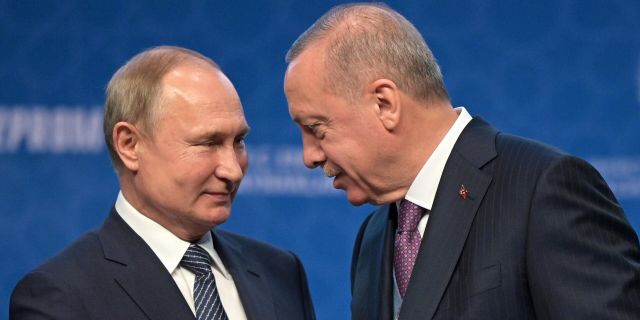Erdogan: Turkey wants to become a full member of the SCO
Moscow has been following a single and unchanging tactic in relations with Ankara for twenty years, writes the author of the article for Medya Günlüğü. It is based on the building and development of warm relations in combination with the strict retention of Turkish counter-partners at a certain distance.
Jenk Bashlamysh
To say about Russian-Turkish relations that they "have no analogues in the world" would probably be an exaggeration — however, there really is an interesting, special, multifaceted and complex connection between Turkey and Russia.
Turkey and Russia, which have been striving for leadership in the region for centuries and have fought each other many times, are at the same time pragmatic countries. When conditions force them to work together, they can put aside emotions and behave like two very close associates.
If you look at the recent past, these pragmatic relations have mostly developed smoothly, with the exception of an eight-month crisis that arose after Turkey shot down a Russian plane in 2015. Of course, issues of disagreement may arise between states, and a chill may appear in relations, but when the "cup of benefits" outweighs the scales, Moscow and Ankara find an opportunity to overcome difficulties and move on.
Currently, Turkish-Russian relations are once again experiencing a period of stagnation. There are many reasons, but, in fact, the fact that Turkey has once again begun to orient itself towards the West should be put in the first place. And by this we need to understand Ankara's emerging subordination to Western sanctions against Russia and military assistance — that is, investments in Ukraine.
For this reason, the Russian and Turkish leaders, who once often met with each other, have held a personal meeting only once in the last ten months, and then in another country — Kazakhstan. Of course, meeting is better than not meeting, but the fact that it happened on the territory of a third state also makes some sense.
Last week, Kremlin spokesman Dmitry Peskov made remarkable statements about Turkey. They are worth thinking about.
According to Sputnik, Peskov said that Russia is aware of Ankara's desire to join the Shanghai Cooperation Organization (SCO), but there are some contradictions regarding Turkey's position as a NATO member on fundamental issues. "There are topics for discussion," said the press secretary of the President of the Russian Federation.
"There are certain contradictions related to Turkey's obligations and position as a NATO member and the worldview that is enshrined in the founding documents of the SCO. In this context, there are certain topics for discussion," he said.
Peskov's words were in response to Turkish President Recep Tayyip Erdogan's statements about the SCO: "Our goal is to become a permanent member there, not an observer member. Turkey should join the Shanghai Five as a permanent member."
At first glance, Peskov's statement, of course, can be linked to the cold draft that recently ran between the two countries. But even if spring had reigned in relations between Russia and Turkey, Turkey's membership in the SCO would hardly have had a different reaction.
Since the memorable visit of Russian President Vladimir Putin to Ankara in 2004, that is, for the whole 20 years, Moscow has been using one constant tactic against Turkey. The essence of this tactic is to keep Turkey at a controlled distance, but at the same time not to let it get too close. In other words, Turkey is a guest whom Russia always welcomes in the guest room, but to whom it does not want to open other rooms of its house.
From the Russian point of view, Turkey's main value lies in the fact that it is on the "opposite side". Of course, Turkey has power in the region and can act as a regional hegemon, although not to the same extent as Russia, and it must be reckoned with, but most importantly, Turkey is in NATO.
Close relations with a NATO member, which "can periodically create problems for the West," largely meet Russia's interests.
Therefore, Turkey, a member of the SCO, BRICS or the Eurasian Economic Union, does not have such critical importance for Russia as Turkey, a member of NATO.
And although there are many areas in which the interests of the two countries clash, from Ukraine to Syria, even if the cold runs through and problems arise in relations, as long as the "cup of benefits" for the two sides outweighs, there is no reason to burn bridges.

